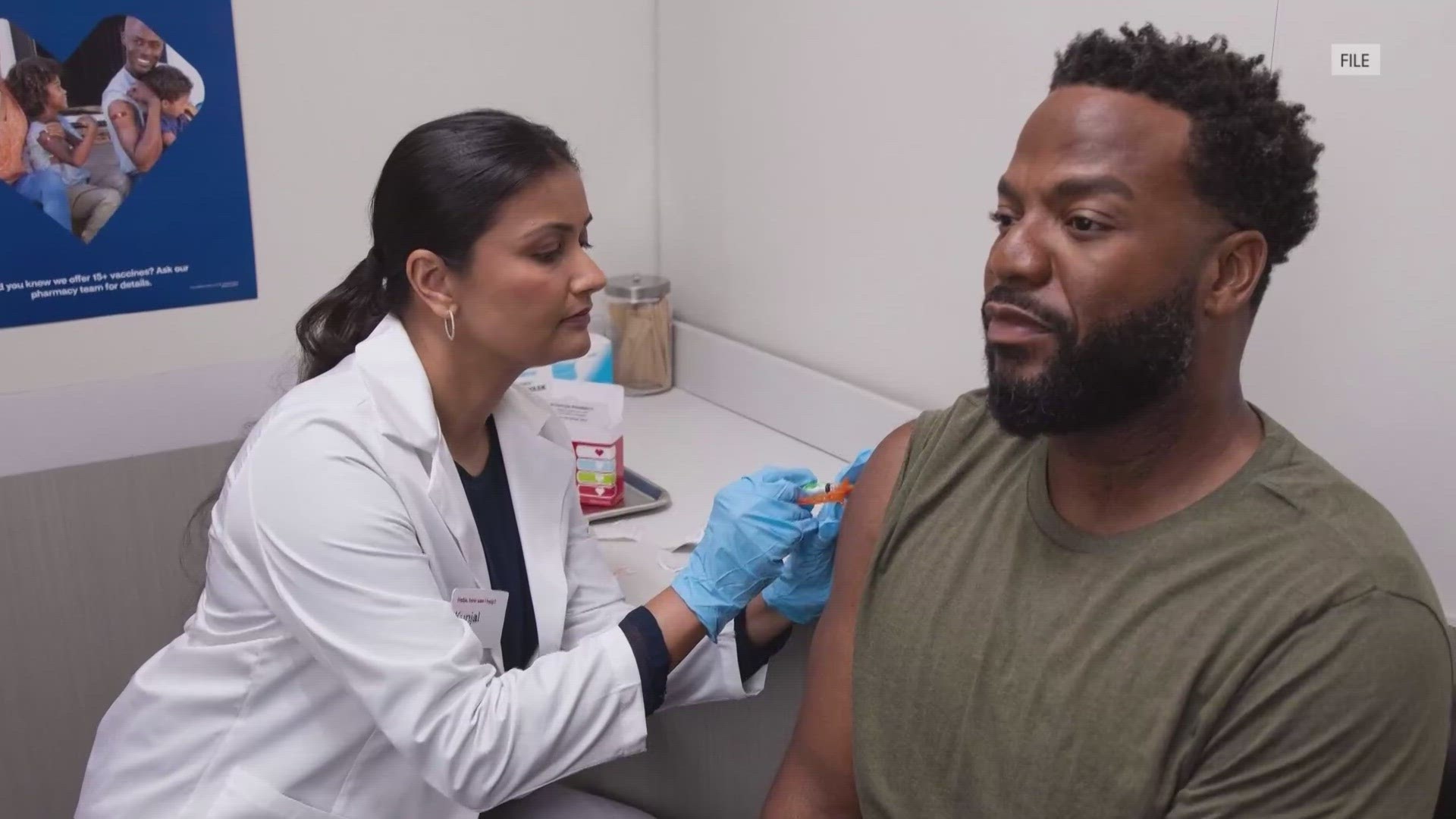SACRAMENTO COUNTY, Calif. — While turning the pages of a photo book, Trish Morris shares the story of her twins born prematurely in 2003. Before bringing her babies home, Morris says she did something she's never done in her life — got a flu shot.
"When my twins were born, they were born at 24 weeks," said Morris. "The one important thing the nurses always stressed was that, because of them having chronic lung disease, we had to get our flu vaccinations and get our shots, the entire family."
Health officials say babies younger than 6 months are at high risk of serious flu complications, but they're too young to get a flu vaccine. That's why anyone who cares for the baby should get vaccinated. Morris says she's been getting the flu shot every year since 2003.
"The flu is real and you do not want to spread it in our communities or to others," said Morris. "I just recently got a flu shot when I went in for my physical. It's been fine for me and my family."
Doctors say the single best way to reduce the risk of seasonal flu and its potentially serious complications is to get vaccinated each year. There are some other good health habits like avoiding people who are sick, covering your cough and washing your hands often to help stop the spread of germs and prevent the flu.
GET MORE RACE & CULTURE FROM ABC10:
►Explore the Race & Culture home page
►Watch Race & Culture videos on YouTube
►Subscribe to the Race and Culture newsletter
Flu can be serious and lead to hospitalization or death.
According to the Centers for Disease Control and Prevention, flu hospitalization rates are nearly 80% higher among Black people compared to white people. It's also 30% higher among Native Americans and 20% higher among Hispanic people.
There are many reasons for these inequities, like lack of access to health care and insurance, missed opportunities to vaccinate and misinformation and distrust. When it comes to increasing equitable vaccine uptake, it also requires addressing the range of reasons why people do not get vaccinated, like debunking myths.
"The flu vaccine does not give you the flu," said Dr. Stephanie Walton, Medical Director with Walton Pediatrics and Medical Associates. "You my have a normal side effect with the flu shot, like you would with any vaccine. It's going to take providers, physicians and medical communities working alongside with the health plans, county and community based groups. All of us together, to get the correct information out."
Morris agrees, saying education is key.
"We need to educate ourselves and decide what's best for ourselves, our families and our loved ones," she said.
We want to hear from you!
The Race and Culture team's mission is to serve our diverse communities through authentic representation, community engagement and equitable reporting. Accomplishing our goals of inclusive reporting requires hearing from you. Is there a person or place that you want us to highlight? Email us at raceandculture@abc10.com or fill out the form below.

